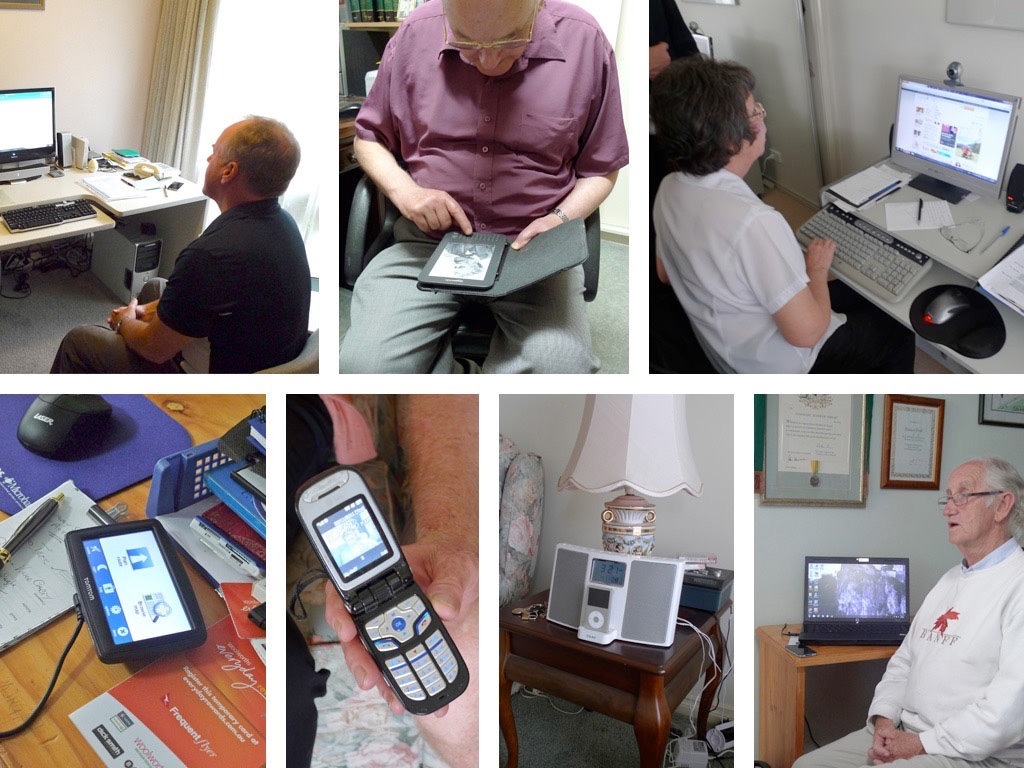
Top Tech Startups to Watch in 2025: Innovation on the Rise.
In 2025, a new generation of tech startups is poised to reshape the world. From brain-computer interfaces and sustainable steel to quantum computing and AI-powered healthcare, these innovators are solving real-world problems with bold ideas. This article explores the top startups to watch—visionary companies driving the next wave of global transformation across industries.
✨ Raghav Jain

Introduction
As we step further into the digital age, the global startup ecosystem is booming with innovation. Venture capital investments have reached new heights, AI is becoming increasingly integrated into daily life, and sustainability is no longer optional—it's a priority. With every passing year, new tech startups emerge that challenge norms, offer breakthrough products, and drive industries forward.
2025 is no exception. In fact, it might be one of the most pivotal years yet, especially with exponential growth in AI, biotechnology, clean energy, quantum computing, and cybersecurity. This article highlights some of the top tech startups to watch in 2025—startups that are not only making headlines but also have the potential to change the world.
1. SynthMind AI (USA) – Redefining Artificial General Intelligence
Focus: Advanced AI with general reasoning capabilities
Founded: 2023
Funding: $150M Series B
SynthMind AI is pushing the boundaries of artificial general intelligence (AGI). While most AI models specialize in narrow tasks, SynthMind is building a platform capable of learning across domains—mathematics, language, decision-making, and even creativity. By combining symbolic reasoning with deep learning, the company claims it can simulate human-like thinking processes. Investors include Sequoia Capital, Nvidia Ventures, and Sam Altman.
Why It Matters:
AGI is the holy grail of AI research. If successful, SynthMind’s platform could redefine entire sectors—education, law, healthcare, and robotics—by enabling machines to learn and adapt like humans.
2. QuantX Labs (Australia) – Quantum Computing for Everyone
Focus: Scalable quantum processors
Founded: 2022
Funding: $80M Series A
QuantX Labs is on a mission to make quantum computing commercially viable. Their core breakthrough involves a room-temperature quantum processor using photonic chips, which eliminates the need for cryogenic environments. Their hardware is already being tested by research institutions and logistics companies for solving complex simulations in milliseconds.
Why It Matters:
Quantum computing promises to revolutionize drug discovery, logistics, and cryptography. QuantX Labs’ approach could democratize access to quantum power much sooner than expected.
3. EcoForge (Germany) – Green Steel for a Greener Planet
Focus: Carbon-neutral steel manufacturing
Founded: 2021
Funding: $120M EU Green Innovation Grant
Steel production is one of the biggest carbon emitters globally. EcoForge has developed a hydrogen-based steelmaking process that produces zero carbon emissions. Already in partnership with European automakers and construction firms, EcoForge's technology could decarbonize one of the dirtiest industries on Earth.
Why It Matters:
With climate change accelerating, industries must pivot fast. EcoForge is offering a realistic, scalable path to carbon-free manufacturing.
4. NeuronInk (USA) – Brain-Computer Interfaces Reimagined
Focus: Non-invasive neural interfaces
Founded: 2023
Funding: $95M Series A
While Elon Musk’s Neuralink focuses on implantable chips, NeuronInk takes a different route: non-invasive BCIs (brain-computer interfaces) using high-density EEG and AI decoding. Their wearable headset allows users to control digital devices, type, and even draw with thoughts alone. The device is being tested for applications in assistive technology and virtual reality.
Why It Matters:
BCIs could unlock a future where paralyzed individuals regain autonomy, and humans interact with machines through thought. NeuronInk offers a safer, more accessible pathway to that vision.
5. Genova Bio (India) – Affordable Personalized Medicine
Focus: AI-driven genomics & precision health
Founded: 2022
Funding: $60M Series A
Genova Bio uses AI to analyze genetic data for early disease prediction, drug response, and personalized treatment plans. Their proprietary “GeneLogic” engine identifies genetic predispositions for conditions like diabetes, cancer, and neurological disorders. With a focus on affordability, their goal is to bring precision medicine to emerging markets.
Why It Matters:
Personalized medicine reduces trial-and-error in treatments and can drastically improve outcomes. Genova Bio is democratizing this revolution for developing countries.
6. TrueShield AI (Israel) – Autonomous Cyber Defense
Focus: AI-powered self-healing cybersecurity
Founded: 2023
Funding: $70M Series A
TrueShield uses machine learning to detect, isolate, and neutralize cyber threats in real-time—without human intervention. Their autonomous cybersecurity platform mimics the human immune system, evolving with threats. Already adopted by several fintech and defense clients, the system can handle zero-day attacks faster than traditional systems.
Why It Matters:
In a world plagued by cyberattacks, TrueShield could be a game-changer in preventing large-scale breaches across critical infrastructures.
7. Orbital Nest (USA) – Modular Space Infrastructure
Focus: In-orbit manufacturing and repair platforms
Founded: 2023
Funding: $110M NASA + SpaceX-backed
Orbital Nest builds robotic stations capable of assembling and repairing satellites in orbit. Their flagship platform, NestOne, can manufacture small parts in microgravity and repair faulty solar arrays. With the growing number of satellites and space debris, their technology could be vital to space sustainability.
Why It Matters:
With space exploration accelerating, in-orbit infrastructure will become essential. Orbital Nest enables longer satellite lifespans and reduces costly launches.
8. EvoLens (UK) – Augmented Reality for the Masses
Focus: Lightweight AR glasses for daily use
Founded: 2021
Funding: $90M Series B
EvoLens creates stylish, affordable AR glasses that project navigation, messages, and apps onto the user’s field of view. The glasses use a micro-LED projection system and connect via Bluetooth to phones. Unlike bulky headsets, EvoLens fits seamlessly into everyday life and fashion.
Why It Matters:
With Apple Vision Pro priced for elites, EvoLens is working to make AR a practical part of daily life for the average consumer.
9. ZeroDrop (Singapore) – Water from Thin Air
Focus: Atmospheric water generation
Founded: 2022
Funding: $45M ClimateTech VC
ZeroDrop builds compact, solar-powered devices that pull clean drinking water from the air, even in arid regions. Their nano-coil technology uses significantly less energy than competitors. Units are already in use in parts of Africa and Southeast Asia where water scarcity is a daily challenge.
Why It Matters:
By 2030, 40% of the world may face water shortages. ZeroDrop’s scalable tech could provide clean water anywhere on Earth.
10. BioBrick (USA) – Programmable Living Materials
Focus: Bioengineered construction materials
Founded: 2023
Funding: $65M Series A
BioBrick uses genetically engineered microbes to produce bricks and building materials that can self-repair and absorb carbon dioxide. These living materials grow stronger over time and can adapt to environmental conditions. Used in eco-homes and disaster zones, they represent a new era of bioarchitecture.
Why It Matters:
Sustainable building is critical to fighting climate change. BioBrick’s living materials blend nature with technology to build the future.
As the world dives deeper into the digital age, 2025 marks a monumental year where technology is not just evolving but transforming every aspect of our lives through the efforts of innovative startups redefining boundaries in AI, biotech, clean energy, quantum computing, and more. Among the frontrunners is SynthMind AI from the USA, developing artificial general intelligence (AGI) that can reason, learn, and adapt across multiple domains—combining deep learning and symbolic logic to simulate human-like cognition, potentially revolutionizing sectors like education, medicine, and law. Meanwhile, QuantX Labs in Australia is democratizing quantum computing with room-temperature photonic processors, eliminating cryogenic needs and making quantum power commercially accessible for logistics, pharmaceuticals, and encryption. In the sustainability domain, EcoForge, a German startup, is making carbon-neutral steel using hydrogen-based processes, addressing the massive carbon footprint of traditional steel manufacturing and attracting partnerships from Europe’s auto and construction industries. Pioneering brain-computer interfaces is NeuronInk in the USA, which is creating non-invasive neural headsets that allow users to control devices, type, or draw using only thoughts, making it a breakthrough in accessibility tech and immersive digital experiences. On the healthcare front, India’s Genova Bio is leading personalized medicine through AI-driven genomics, making early diagnosis and tailored treatments affordable and accessible, particularly in developing markets, with its “GeneLogic” engine identifying genetic predispositions to complex diseases. Tackling the rising threat of cyberattacks is TrueShield AI of Israel, offering autonomous self-healing cybersecurity systems that mimic the immune system—detecting, isolating, and neutralizing threats in real-time, and especially useful in fintech and defense sectors where zero-day attacks are a critical threat. Moving beyond Earth, Orbital Nest in the USA is building modular space infrastructure like robotic platforms for satellite manufacturing and repairs in orbit, addressing the issues of space debris and cost inefficiencies while supporting the booming space tech industry. On Earth, EvoLens from the UK is making augmented reality practical and fashionable with lightweight AR glasses that project messages, navigation, and apps into users’ view using a micro-LED system, unlike bulky headsets, aiming for mass adoption in daily life. Addressing global water scarcity is ZeroDrop, a Singapore-based company creating solar-powered atmospheric water generators that pull potable water from thin air using energy-efficient nano-coils, already deployed in arid regions of Africa and Southeast Asia. Meanwhile, the USA’s BioBrick is redefining construction with programmable, living building materials made from engineered microbes that self-repair, adapt to environments, and absorb carbon dioxide, merging synthetic biology with eco-friendly architecture. All these startups showcase a shared trait—tackling real-world problems with disruptive yet scalable technology backed by solid leadership and funding. Each of them contributes uniquely: whether it’s NeuronInk enabling communication for the paralyzed, QuantX revolutionizing computing speed and power, or EcoForge decarbonizing a major industry. They also represent a broader shift in global investor sentiment, which is now increasingly driven by sustainability, inclusivity, and impact. Even industries traditionally slow to change, like construction and steel, are undergoing massive transformation due to these startups’ innovation-driven approach. For instance, Orbital Nest's work ensures that the growing satellite ecosystem becomes sustainable, while BioBrick introduces the idea of buildings being part of the ecosystem instead of damaging it. TrueShield’s model of autonomous cybersecurity provides a glimpse into the future where systems protect themselves without human oversight, a necessity in an era of growing cyber threats. Similarly, EvoLens is making AR viable for the average person, not just tech enthusiasts or gamers, helping integrate digital and real worlds more organically. These startups don’t merely create new products; they change how we think about technology’s role in our future—from redefining intelligence to solving water scarcity and making quantum computing user-friendly. The trend is clear: innovation today is about practicality, ethics, and impact. With global challenges like climate change, healthcare gaps, and digital security looming large, the success of these companies could signal new industry standards. Watch these startups closely—2025 may very well be the year they change the world.
As the world embraces rapid digital transformation, 2025 stands out as a critical year for groundbreaking technologies emerging from a new generation of startups that are redefining innovation across sectors such as artificial intelligence, quantum computing, biotechnology, clean energy, and augmented reality. These startups are not just participating in their industries—they are actively disrupting them. Among the most promising is SynthMind AI, a U.S.-based company aiming to develop artificial general intelligence (AGI), not just narrow AI. SynthMind’s platform combines deep learning with symbolic reasoning, enabling machines to think across domains in a manner similar to human cognition. This leap toward AGI could revolutionize sectors like healthcare, education, and law by creating systems that can adapt and learn in real-time rather than operate within rigid, predefined constraints. In the world of computing, QuantX Labs from Australia is making waves by developing scalable, room-temperature quantum processors based on photonic chips. Unlike conventional quantum systems requiring cryogenic cooling, QuantX’s design offers a practical, cost-effective path to quantum power, unlocking potential in fields like logistics, cryptography, and material science. On the sustainability front, EcoForge, a German startup, is leading the charge to decarbonize the steel industry—one of the largest global emitters—by using hydrogen instead of coal in its production process, thereby creating carbon-neutral steel that is already attracting attention from automakers and infrastructure developers. Meanwhile, the American firm NeuronInk is venturing into the exciting realm of brain-computer interfaces (BCIs), with a non-invasive headset that interprets electrical brain activity using AI, enabling users to control digital devices simply by thinking. This has massive implications for accessibility, particularly for individuals with paralysis or neurological impairments, while also opening doors for immersive AR and VR interactions. In healthcare, Genova Bio from India is revolutionizing personalized medicine using AI and genomic analysis to predict diseases and recommend treatments tailored to individual DNA profiles. Their “GeneLogic” engine, built to serve the vast populations of developing nations, is not only affordable but also highly effective in early detection of conditions like cancer and diabetes, helping shift healthcare from reactive to preventive. Cybersecurity, another domain of growing global concern, is being tackled by TrueShield AI from Israel, which is pioneering autonomous cybersecurity solutions that mimic the human immune system. TrueShield’s AI not only detects threats in real time but evolves with them, learning and adapting continuously, allowing organizations to prevent zero-day attacks without human intervention. Space technology is also seeing startup disruption via Orbital Nest, a U.S.-based company building robotic platforms for satellite assembly and repair in orbit. As the number of satellites in space increases exponentially, Orbital Nest’s “NestOne” system allows for repairs and adjustments without needing new launches, thereby reducing space debris and lowering operational costs. Closer to Earth, EvoLens in the UK is redefining how consumers engage with augmented reality by offering lightweight, fashionable AR glasses that project contextual information directly into the user’s line of sight. These glasses sync seamlessly with smartphones and use micro-LED projection technology, positioning themselves as the AR solution for mainstream, daily use. In response to the global water crisis, ZeroDrop of Singapore is developing portable atmospheric water generators powered by solar energy. These devices can extract drinkable water even from arid air using energy-efficient nano-coils, already providing clean water solutions in parts of Africa and Southeast Asia. Finally, BioBrick, a U.S.-based startup, is introducing living construction materials created from engineered microbes that can grow, self-repair, and even absorb CO₂. These materials adapt to environmental conditions and are being used in eco-conscious building projects, offering a sustainable and resilient alternative to traditional construction. Taken together, these startups symbolize more than just technological progress—they represent a shift in how innovation is conceived and applied. No longer limited to creating faster, cheaper, or more powerful products, these companies are solving existential problems such as climate change, global health disparities, cybersecurity, and digital accessibility. Their innovations are characterized by ethical design, inclusive reach, and environmental responsibility. While many of them are still in early funding stages—Series A or B—they already show strong backing from governments, major venture capital firms, and strategic partners such as NASA, SpaceX, Sequoia Capital, and Nvidia Ventures. The significance of their work lies not only in what their products do, but in how those products fundamentally change industries. For example, SynthMind’s AGI could render current AI applications obsolete by allowing machines to independently solve new problems, while ZeroDrop’s water-from-air solution could end dependency on centralized water systems in remote regions. Similarly, BioBrick’s living materials challenge the very definition of a building as something static, introducing a world where structures are dynamic, evolving, and environmentally responsive. QuantX Labs is making it feasible for companies outside of elite tech circles to access quantum computing, opening doors for midsize companies and universities to conduct experiments that were previously unimaginable. Genova Bio’s affordable genetic insights empower patients and doctors alike with personalized information that improves treatment outcomes while lowering long-term costs. TrueShield AI addresses one of the biggest threats of our time—cyberattacks—by eliminating the need for reactive human response and enabling real-time, autonomous defense mechanisms. Meanwhile, EvoLens challenges Big Tech’s dominance in AR with a sleek, consumer-friendly alternative that could be the catalyst for mass adoption. Orbital Nest may very well become the backbone of sustainable space operations as governments and private companies invest heavily in satellite infrastructure. And NeuronInk brings us closer to seamless interaction between the human brain and digital technology, with life-changing implications for those living with disabilities. What ties all these companies together is their emphasis on scalable, meaningful change—not just flashy features or short-term gains. They are built with the future in mind, whether it’s a future with smarter machines, cleaner air, healthier people, or more connected communities. With billions in global venture capital flowing into these sectors, 2025 could be the launchpad year when these companies move from obscurity to ubiquity, shaping not only the future of technology but the future of civilization itself. Investors, researchers, and policy makers would be wise to watch them closely—not just for returns, but for insight into the next great wave of human progress.
Conclusion
The startups featured in this list aren’t just riding technological trends—they’re shaping the future. From clean energy and space exploration to AI, AR, and biotechnology, 2025 is brimming with innovation poised to transform how we live, work, and interact with the world.
What distinguishes these companies is not just their breakthrough technologies, but their commitment to solving real-world problems. As investors, governments, and consumers increasingly demand sustainability, inclusivity, and ethical tech, startups that embody these values are gaining the edge.
Keep a close watch on these emerging players. Their success could signal broader shifts in global industries—and possibly even the birth of the next Apple, Tesla, or Google.
Q&A Section
Q1:- What makes a tech startup stand out in 2025?
Ans:- A standout tech startup in 2025 is one that leverages breakthrough technology, addresses a pressing global issue (such as climate change or healthcare), has scalable potential, and is backed by strong funding and leadership.
Q2:- Which startup is focusing on brain-computer interfaces in a non-invasive way?
Ans:- NeuronInk is developing non-invasive brain-computer interfaces that allow users to control devices with their thoughts using wearable headsets.
Q3:- How is EcoForge changing the steel industry?
Ans:- EcoForge has developed a hydrogen-based steel production method that emits zero carbon, offering a sustainable alternative to traditional steel manufacturing.
Q4:- What is unique about ZeroDrop's technology?
Ans:- ZeroDrop’s devices extract clean drinking water from the air using solar power and energy-efficient nano-coils, making them ideal for arid or water-scarce regions.
Q5:- Which startup is democratizing quantum computing?
Ans:- QuantX Labs is making quantum computing more accessible by developing room-temperature, photonic-based quantum processors.
Similar Articles
Find more relatable content in similar Articles

From Phishing to Data Theft: ..
Cybercrime in India is evolvi.. Read More

Cloud PCs: Will Your Next Comp..
Cloud PCs are transforming the.. Read More

Digital inclusion: designing d..
Designing technology for elder.. Read More

Digital Privacy in 2025: How S..
In 2025, digital privacy faces.. Read More
Explore Other Categories
Explore many different categories of articles ranging from Gadgets to Security
Smart Devices, Gear & Innovations
Discover in-depth reviews, hands-on experiences, and expert insights on the newest gadgets—from smartphones to smartwatches, headphones, wearables, and everything in between. Stay ahead with the latest in tech gear
Apps That Power Your World
Explore essential mobile and desktop applications across all platforms. From productivity boosters to creative tools, we cover updates, recommendations, and how-tos to make your digital life easier and more efficient.
Tomorrow's Technology, Today's Insights
Dive into the world of emerging technologies, AI breakthroughs, space tech, robotics, and innovations shaping the future. Stay informed on what's next in the evolution of science and technology.
Protecting You in a Digital Age
Learn how to secure your data, protect your privacy, and understand the latest in online threats. We break down complex cybersecurity topics into practical advice for everyday users and professionals alike.
© 2025 Copyrights by rTechnology. All Rights Reserved.